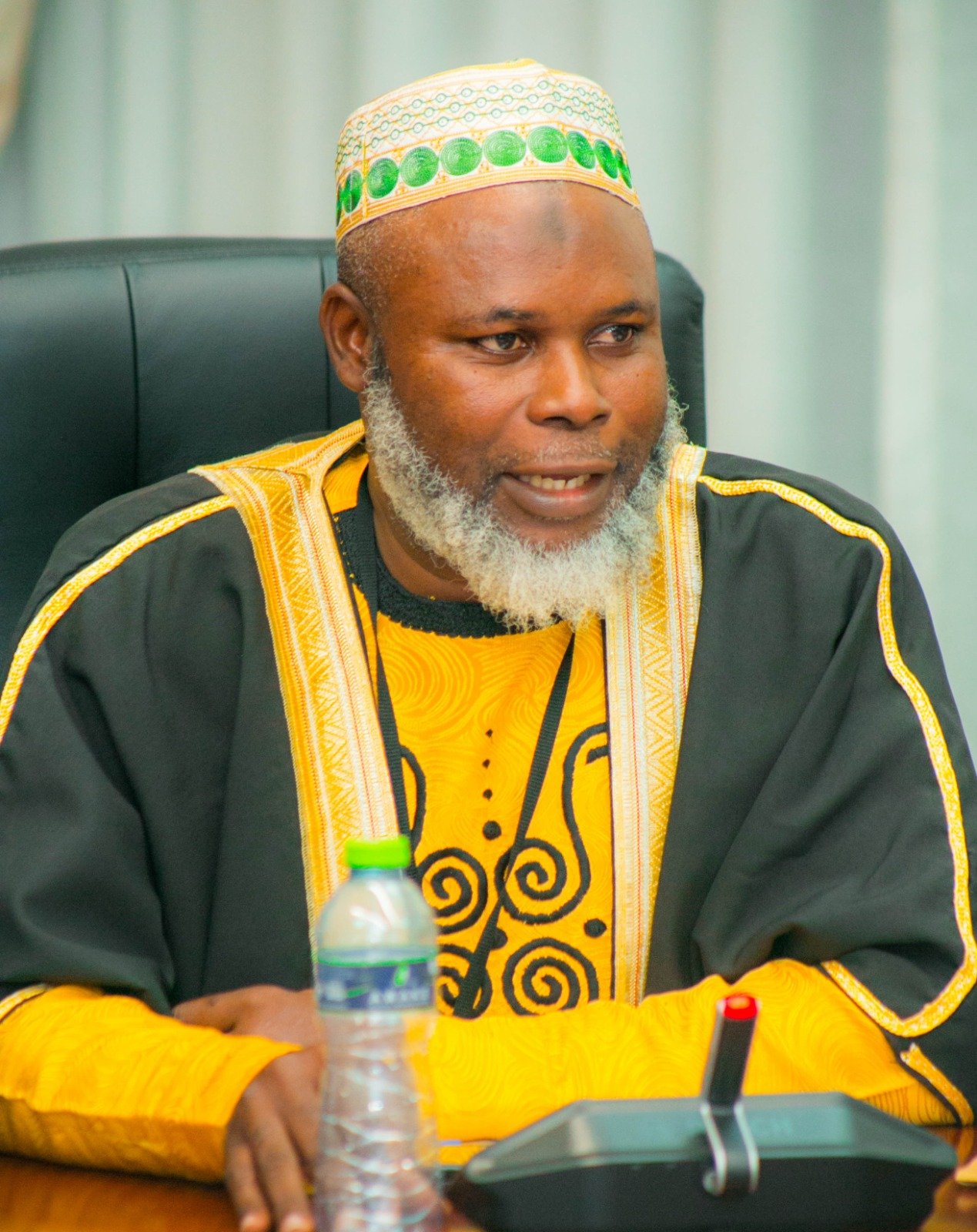Fruitful Living
Caring for the community and one another

• Helping others can help you live longer
“When the Son of Man comes in His glory, and all the angels with Him, He will sit on His glorious throne. All the nations will be gathered before Him, and He will separate the people one from another as a shepherd separates the sheep from the goats. He will put the sheep on His right and the goats on His left.
“Then the King will say to those on his right, ‘Come, you who are blessed by my Father; take your inheritance, the kingdom prepared for you since the creation of the world. For I was hungry and you gave me something to eat, I was thirsty and you gave me something to drink, I was a stranger and you invited me in, I needed clothes and you clothed me, I was sick and you looked after me, I was in prison and you came to visit me.’
“Then the righteous will answer him, ‘Lord, when did we see you hungry and feed you, or thirsty and give you something to drink? When did we see you a stranger and invite you in, or needing clothes and clothe you? When did we see you sick or in prison and go to visit you?’
“The King will reply, ‘Truly I tell you, whatever you did for one of the least of these brothers and sisters of mine, you did for me.’
“Then he will say to those on his left, ‘Depart from me, you who are cursed, into the eternal fire prepared for the devil and his angels. For I was hungry and you gave me nothing to eat, I was thirsty and you gave me nothing to drink, I was a stranger and you did not invite me in, I needed clothes and you did not clothe me, I was sick and in prison and you did not look after me.’“They also will answer, ‘Lord, when did we see you hungry or thirsty or a stranger or needing clothes or sick or in prison, and did not help you?’ “He will reply, ‘Truly I tell you, whatever you did not do for one of the least of these, you did not do for me.’“Then they will go away to eternal punishment, but the righteous to eternal life.”– Matthew 25:31-46.
INTRODUCTION
The parable in Matthew 25:34-40 describes acts of mercy we all can do every day. These acts do not depend on wealth, ability or intelligence; they are simple acts freely given and freely received. We have no excuse to neglect those who have deep needs, and we cannot hand over this responsibility to the church or government. Jesus demands our personal involvement in caring for others’ needs.
The point of this parable is not the who, but the what – the importance of serving where service is needed. The focus of this parable is that we should love every person and serve anyone we can. Such love for others glorifies God by reflecting our love for Him.
When we show mercy, compassion, and kindness (the marks of His Kingdom) to others straits, we are practising the merciful attitude that God expects each of His children to exhibit at all times.
1. Why are we not caring for one another
Unfortunately, the outcome of a society shifting toward individualism is a lack of empathy.–Caring about ourselves and our own welfare, but not caring about others. The effects of this include:
- Economic greed that leads to disparity.
- Neglect of the less fortunate.
- Inability to cooperate with others. Already evident in our polarised political system, where people and parties with opposing views are unable to work together to solve problems.
- The absence of self-sacrifice for the collective good.
BENEFITS OF CARING FOR OTHERS
1. Helping others feels good
There is some evidence to suggest that when you help others, it can promote physiological changes in the brain linked with happiness. This heightened sense of well-being might be the by-product of being more physically active as a result of volunteering, or because it makes us more socially active.
2. It creates a sense of belonging
Helping others can help us to make new friends and connect with our community. Face-to-face activities such as volunteering at a food bank can also help reduce loneliness and isolation.
3. It gives you a sense of purpose
Studies show that volunteering enhances an individual’s overall sense of purpose and identity. This is because helping others can make you feel rewarded, fulfilled and empowered.
4. Giving helps keep things in perspective
Helping others, especially those who are less fortunate than yourself, can help to put things into perspective and make you feel more positive about your own circumstances.
5. It is contagious
One study found that people are more likely to perform feats of generosity after observing another do the same. This effect can ripple throughout the community, inspiring dozens of individuals to make a difference.
6. Helping others can help you live longer
Regular volunteering can improve your ability to manage stress and stave off disease as well as increasing your sense of life satisfaction. This might be because volunteering alleviates loneliness and enhances our social lives.
7. It will give you a sense of renewal
Helping others can teach you to help yourself. If you’ve been through a tough experience or just have a case of the blues, the “activism cure” is a great way get back to feeling like yourself.
8. You’ll boost your self-esteem
People who volunteer have been found to have higher self-esteem and overall wellbeing. The benefits of volunteering also depend on your consistency. So, the more regularly you volunteer, the more confidence you’ll gain.
9. You’ll create stronger friendships
When you help others, you give off positive vibes, which can rub off on peers and improve your friendships. Being a force for good in a friend’s life can help build a lasting bond.
10. You become a glass half-full type person
Having a positive impact on someone else could help you change your own outlook and attitude. Experts say that performing act of kindness boosts your mood and ultimately makes you more optimistic and positive.
Progress depends on our brain. The most important part of our brain, that which is neocortical, must be used to help others not just to make discoveries.” Rita Levi-Montalcini
End Note
In fact, one of the primary ways we can serve God in a very real way is to show kindness to ‘the least of these’, which includes anyone – particularly those among God’s people – who could use our help or attention. These are people who others often overlook because they cannot repay the kindness. Jesus said that when His followers practise active compassion toward others, they are actually doing something for Him. This means that if we want to see or touch Jesus directly, we will have to look for Him in people who are hurting or in need.
Both the faithful and unfaithful were unaware of times when they encountered Jesus in life (Matthew 25:37-39). Even those who did the right thing were seemingly oblivious to when they acted with compassion. It seems that on those occasions when they helped others, the act or actions were not unusual or special in any way; serving others was simply a way of life for them. All of this shows that true service to God often takes place in the more routine and unassuming areas of life – when no one else notices. But God always notices when we do something for Him, and He will reward us accordingly on judgement day.
Stay blessed!
By Dr Joyce Aryee, the author
For further inquiries please contact us on Tel Nos. 0243588467 or 0268130615
Email: saltnlightministries@gmail.com
Website: saltandlightministriesgh.org
Fruitful Living
Institution of Marriage in Islam (Pt.3)

Regarding sexual intimacy, it is also prohibited for a wife to demand money or gifts before allowing her husband to engage in sexual relations. Islam views this as a form of exploitation and sin. A marital relationship must be based on mutual love, respect, and affection rather than material gain.
Prohibition of sexual intercourse during menstruation
Islam has clear guidelines regarding sexual relations during certain times, particularly when a woman is menstruating. The Qur’an prohibits sexual intercourse during menstruation, stating:
“And they ask you about menstruation. Say: ‘It is harm, so keep away from women during menstruation. And do not approach them until they are pure. And when they have purified themselves, then come to them from where Allah has ordained for you. Indeed, Allah loves those who are constantly repentant and loves those who purify themselves’” (Qur’an 2:222).
This verse emphasises the importance of refraining from sexual activity during menstruation due to physical and spiritual reasons. However, all other forms of affection and companionship are allowed, and husbands should continue to care for their wives during this time with love and respect.
Islamic law encourages cleanliness and personal hygiene, especially in matters related to physical intimacy. After the menstruation period ends, it is recommended that the wife perform ghusl (ritual purification) before resuming sexual relations with her husband.
Rights of Children on Parents
Islam emphasises the rights of children on their parents, as marriage is the foundation of family life. Parents are obligated to provide their children with proper care, education, and moral guidance. The Qur’an states: “O you who have believed, protect yourselves and your families from a Fire whose fuel is people and stones…” (Qur’an 66:6).
This highlights the parents’ responsibility to raise their children with a strong sense of morality and faith. Children have the right to a good name, religious upbringing, and education, and they must be treated with fairness and love.
In Ghana’s law, there is Children’s Right Act, Act 560 (1989) which states among other things,
• Section 4, Right to Name, Nationality and secure a Birth Certificate for the child
• Section 6(3) (a&b), protection from neglect, provide good guidance, care etc
• Section 8(1&2), Right to education and wellbeing (medical care, diet, clothing, shelter).
How Do Married Couples Resolve Their Differences in Islam?
Islam provides clear guidelines for resolving marital conflicts in a just and compassionate manner.
The Qur’an instructs that in the event of marital discord, both parties should seek reconciliation:
“If you fear dissension between the two, send an arbitrator from his people and an arbitrator from her people. If they both desire reconciliation, Allah will cause it between them” (Qur’an 4:35).
The goal is always to preserve the marriage and restore harmony. If reconciliation is not possible, Islam permits divorce as a last resort, but it is considered the most disliked permissible act in the eyes of Allah (SWT).
Rewards of Marriage in Islam
Marriage in Islam is not only a social institution but also an act of worship that brings great rewards. The Prophet Muhammad (PBUH) said: “When a man marries, he has fulfilled half of his religion, so let him fear Allah regarding the remaining half” (Bayhaqi, Shu’ab al-Iman).
Married couples are rewarded for fulfilling their marital responsibilities, showing kindness to each other, and raising righteous children who contribute positively to society.
Scholarly Thoughts About Marriage in Islam
Islamic scholars, such as Imam Al-Ghazali, have discussed marriage as a means of controlling desires and fulfilling one’s spiritual obligations. Modern scholars like Sheikh Yusuf Qaradawi also stress the importance of mutual respect and understanding in marriage, ensuring that both partners can grow spiritually and emotionally within the marriage.
Conclusion
In conclusion, marriage in Islam is a divinely ordained relationship based on mutual love, respect, and responsibility. By following the guidance of the Qur’an and Sunnah, and observing the legal frameworks in place, such as Ghana’s Mohammedan Ordinance, we can establish strong and harmonious marriages that contribute to the moral and spiritual development of society. May Allah (SWT) guide us to fulfill our marital responsibilities with sincerity and love.
The Writer is Kpone Katamanso Municipal Chief Imam, Democracy and Governance Law Student, UCC, Member of Ghana National Association of Certified Counsellors Certified by Ghana Psychology Council
References:
1.Qur’an, Surah Ar-Rum (30:21)
2.Qur’an, Surah An-Nisa (4:34, 4:4, 4:19, 4:35)
3.Qur’an, Surah Al-Baqarah (2:187, 2:221, 2:222, 2:223)
4.Qur’an, Surah At-Tahrim (66:6)
5.Ibn Majah, Hadith 1845, 1905
6.Tirmidhi, Hadith 1162, 1084
7.Bukhari, Hadith 5090
8.Children’s Right Act, Act 560 (1989)
9.Bayhaqi, Shu’ab al-Iman
10.Al-Ghazali, Ihya Ulum al-Din
11.Qaradawi, The Lawful and Prohibited in Islam
Fruitful Living
Adansi North DCE marks birthday on Farmers’ Day

It was a momentous day for the Adansi North District Chief Executive, Eric Kwaku Kusi, last Friday November 8, as the 40th National Farmers Day district level celebration held here at Adansi Adokwai coincidentally fell on his birthday.
On a low-key, Mr Kusi momentarily took to the floor, to exhibit his dancing skills responding to cheers of “Happy Birthday to you” from the audience, to which he also responded with a gesture of thanks and praises to God, as he stepped out to address the gathering.
He was joined on the dancing floor by the assembly members singing praises to God for the life of their indefatigable DCE.
In his address, Mr Kusi commended farmers in the Adansi North and the country as a whole “who tirelessly cultivate the land to feed all of us in our communities.”
He said the government realising the important role agriculture played in the economy and the challenges facing farmers due to the effects of climate change was rolling out initiatives and policies to support climate-resilient agriculture, including agriculture insurance programme for farmers.
In all 16 farmers were awarded various prizes for their contribution to food sufficiency in the country.
Francis Appiah, 41, who hails from Adokwai was adjudged the District Best Farmer for 2024, and took home a tricycle and other assorted items. The first runner-up prize went to Sakyi Kwabena also from Adokwai and the second runner-up went to Kwame Gyamera from Dompoase.
From Alhaji Salifu Abdul-Rahaman, Adansi Adokwai







